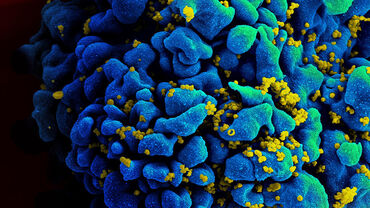Stay safe this summer: protect yourself from STIs in the upcoming holiday season
Sexually transmitted infections (STIs) are spreading across Europe, and the European Centre for Disease Prevention and Control (ECDC) is urging everyone to stay informed and practice safer sex during upcoming holidays, festivals, and travel this summer season.
With increased social interaction and sexual encounters during the summer, there is an increased possibility of STIs spreading. This underscores the importance of understanding risks, knowing one’s health status, and making informed decisions about sexual health, as the most recent EU/EEA level data show that STIs are still increasing in many parts of the region. .
ECDC emphasises the importance of safer sex practices, including consistent condom use for vaginal, anal, and oral sex. Getting tested for STIs is recommended before having sex without a condom with new partners, as people can have an STI without having any symptoms. If that is not possible, it is important to get tested after having sex without a condom.
Aside from chlamydia, gonorrhoea and syphilis, other infections such as mpox can be spread in the context of sex. Following the multi-country outbreak of mpox clade II in 2022, primarily among men who have sex with men, the number of new cases reported has been at lower levels. However, as cases are still being detected in many countries across Europe, there is a possibility of an increase in transmission during the summer in connection with festivities such as Pride and increased travel across Europe. Mpox can be transmitted to others even before symptoms start.
Consulting with healthcare providers for vaccinations (against mpox but also hepatitis A and hepatitis B) and preventative measures, such as Pre-Exposure Prophylaxis (PrEP) for HIV prevention, can also help reduce the risk of these infections.
Some infections that cause severe diarrhoea, such as Shigella and hepatitis A, also spread among men who have sex with men. Europe has seen cases of extensively drug-resistant Shigella infection, which is harder to treat. To prevent infection, use disposable gloves for fingering or fisting, dental dams during oral-anal sex, and change condoms between anal and oral sex. It is recommended that people do not share sex toys and ensure proper cleaning and disinfection after their use, and between partners. It is also important to wash hands, genital and anal areas before and after sexual contact. If experiencing diarrhoea, it is important to avoid sexual activity and speak to a healthcare provider.
It is important to take proactive steps to protect one's sexual health. By prioritising preventive measures, staying informed, and fostering open communication with partners and health professionals, individuals can help curb the spread of STIs, HIV, mpox, Shigella, and viral hepatitis and promote healthier outcomes for all.
Find out more
Public health advice for EuroPride 2025
Ahead of EuroPride 2025 (June 14–22) in Lisbon, Portugal, the European Centre for Disease Prevention and Control (ECDC), the World Health Organization Regional Office for Europe (WHO/Europe), and Portugal’s Direção-Geral da Saúde (DGS) have together issued health advice for people attending the events.








